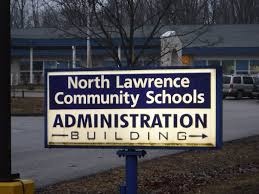
(BEDFORD) – The North Lawrence Community Schools violated the Open Meetings Law according to the opinion of the Public Access Counselor Office.
In a notice received by WBIW last night, the response from the Public Access Counselor released the following opinion:
“Based on the foregoing, it is the opinion of this office that the NLCS Visionary Committee is subject to the Open Door Law. As a result, NLCS did not comply with the Open Door Law by holding eight separate closed-door meetings.”
To read the full opinion click here.
The response comes after Jason Johnson, of Bedford, filed a complaint on November 19th stating:
“I feel the Bedford North Lawrence school board including the superintendent, has violated the state’s open door law by not identifying those chosen to sit on the Visionary Committee and by not disclosing to the public the time and place of these meetings. The meetings to discuss the district’s school closings should have been open to the public to observe.
“The school board members are elected by the community to serve and the community needs to be present at these meetings due to the effect it would have on our kids. A lot of the business of the community is conducted behind closed doors then announced afterward. It not only ethically and morally wrong, but unlawful.“
WBIW has requested the names of those who served on the Visionary Committee as well as a response to the opinion of the Public Access Counselor.
The Public Access Counselor provides advice and assistance concerning Indiana’s public access laws to members of the public and government officials and their employees.
Under Indiana Code 15-4-1 government agencies must hold official meetings of a majority of their governing bodies, such as a council, or board meetings, publicly. As a citizen, you have the right to attend and record meetings.
While you can attend and record these events, you do not have the right to speak at them, but may have the opportunity to speak.
Public meetings must be in rooms and buildings that people with disabilities can access.
If an open meeting has violated the Open Door Law, the court can choose to stop or make void any action taken during that meeting or make a formal statement that the meeting violated the law.



